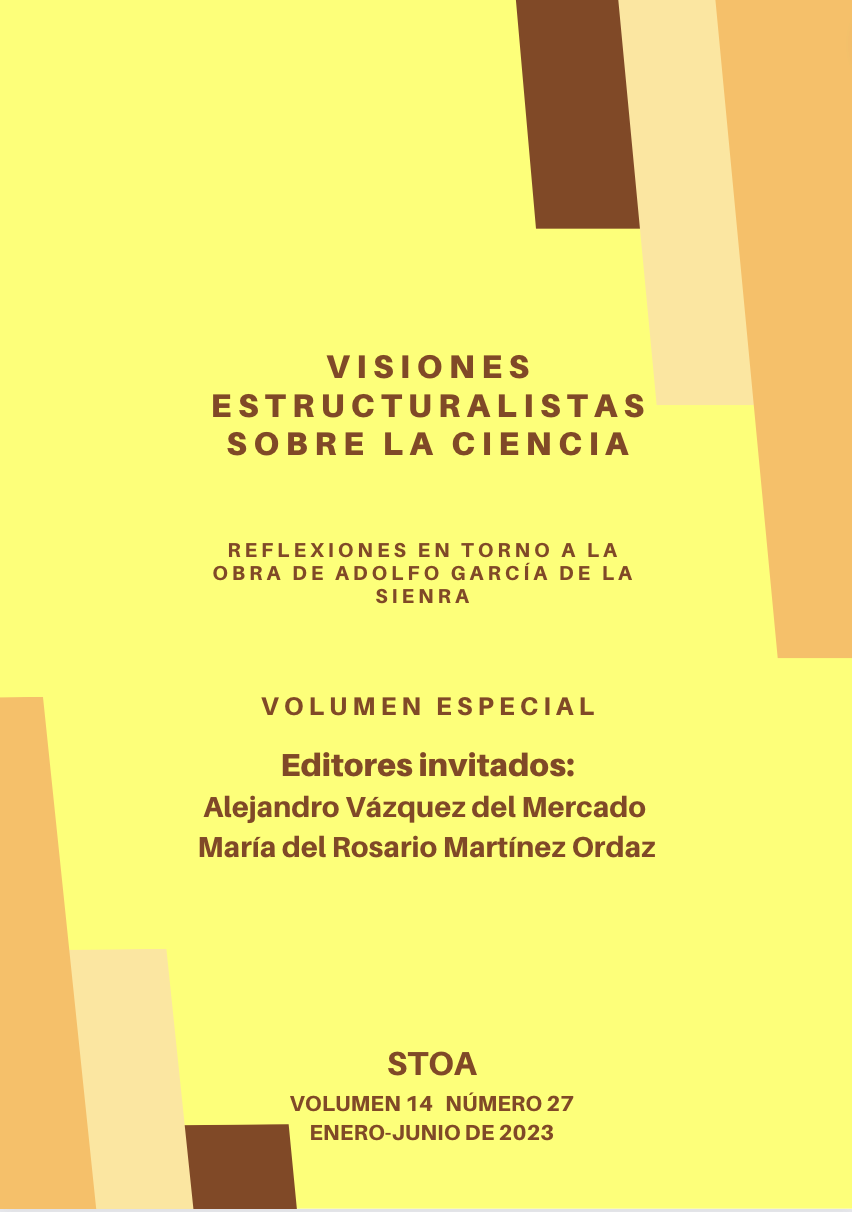Abstract
There are key concepts in the diversity of sciences (whether sciences: formal, natural, biosocial or social) such as “theory” or “model” that are subject today to extensive epistemological debate, i.e. from the theory of knowledge, and centered on the study of scientific knowledge in particular. Scientists, then, construct and use different notions that actually carry an exhaustive extrascientific debate about their nature. This paper will offer some clarifications and formal proposals of such notions from the philosophy of science of the astrophysicist and philosopher Gustavo Esteban Romero (G. E. Romero). Specifically, some formal definitions of “theory’ and “model” will be tested for current sciences (and other disciplines that can be applied), and these ideas will be contextualized in the debate on the structure and organization of scientific knowledge.
STOA is a biannual publication edited by the Institute of Philosophy of the Universidad Veracruzana, Tuxpan, No. 29, Frac. Veracruz, C.P. 91020, Xalapa, Ver., Tel. 8154285, http://www.uv.mx/filosofia. Responsible editor: Jesús Turiso Sebastián. Exclusive Use Rights Reservation No. 04-2008-121012511200-203, granted by the Copyright Reservation Directorate of the National Institute of Copyright of the Secretariat of Public Education, ISSN: 2007-1868. Responsible for the last modification of this issue: Jesús Turiso Sebastián, Tuxpan, No. 29, Frac. Veracruz, C.P. 91020, date of last modification August 5, 2011. Distribution and digital support by the Academic Software Development Department of the Universidad Veracruzana.
The opinions expressed by the authors do not necessarily reflect the position of the editor of the publication. Reproduction by any means of the texts published in this journal may be done as long as the source is cited, including the name of the author, the name and number of the journal, and its electronic address. For more information write to revistastoa@uv.mx.
Revista Stoa is a completely free publication, with no cost for processing or receiving articles and free access.
This work is under a Creative Commons Attribution-NonCommercial-ShareAlike 4.0 International license.


